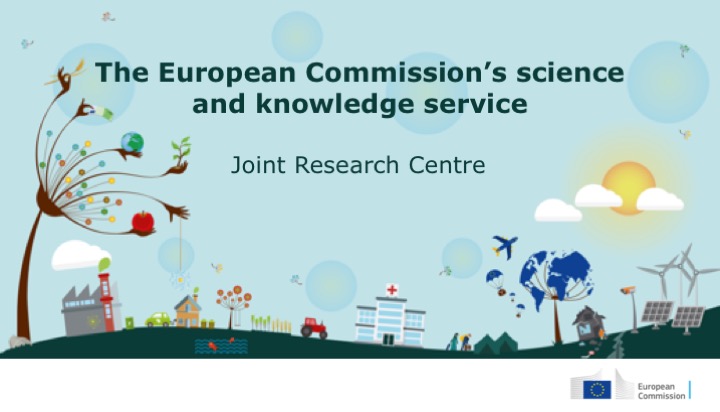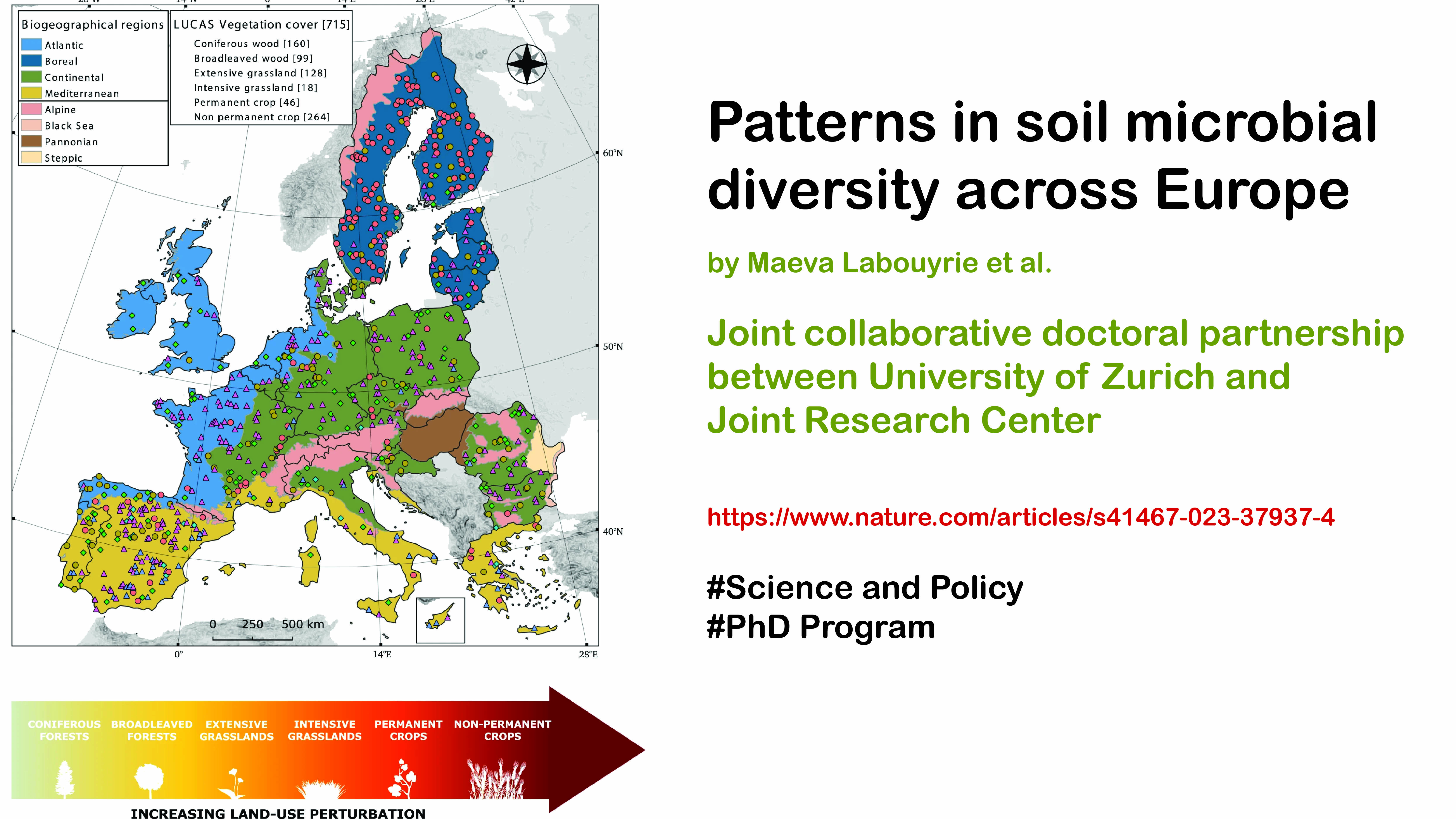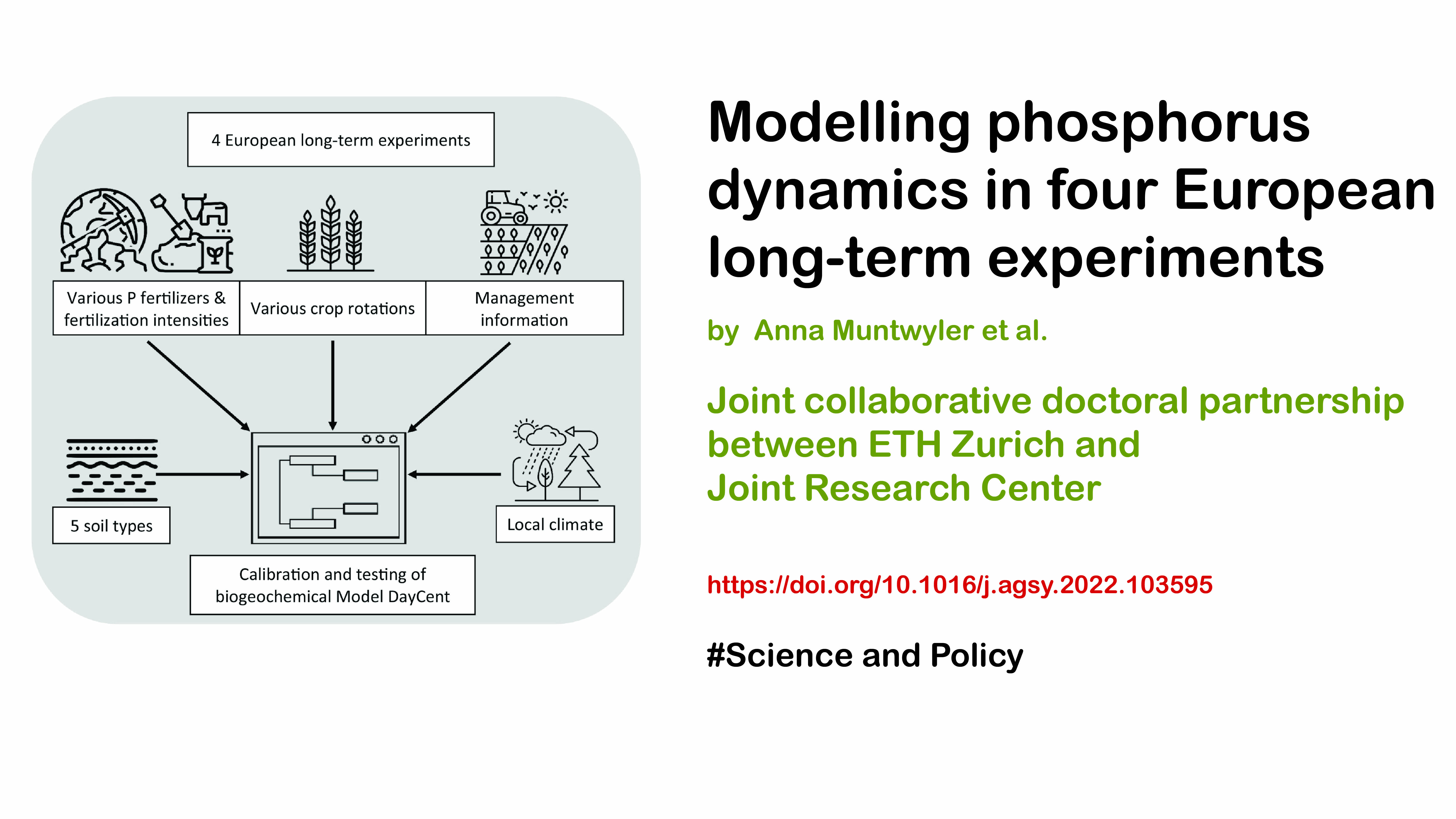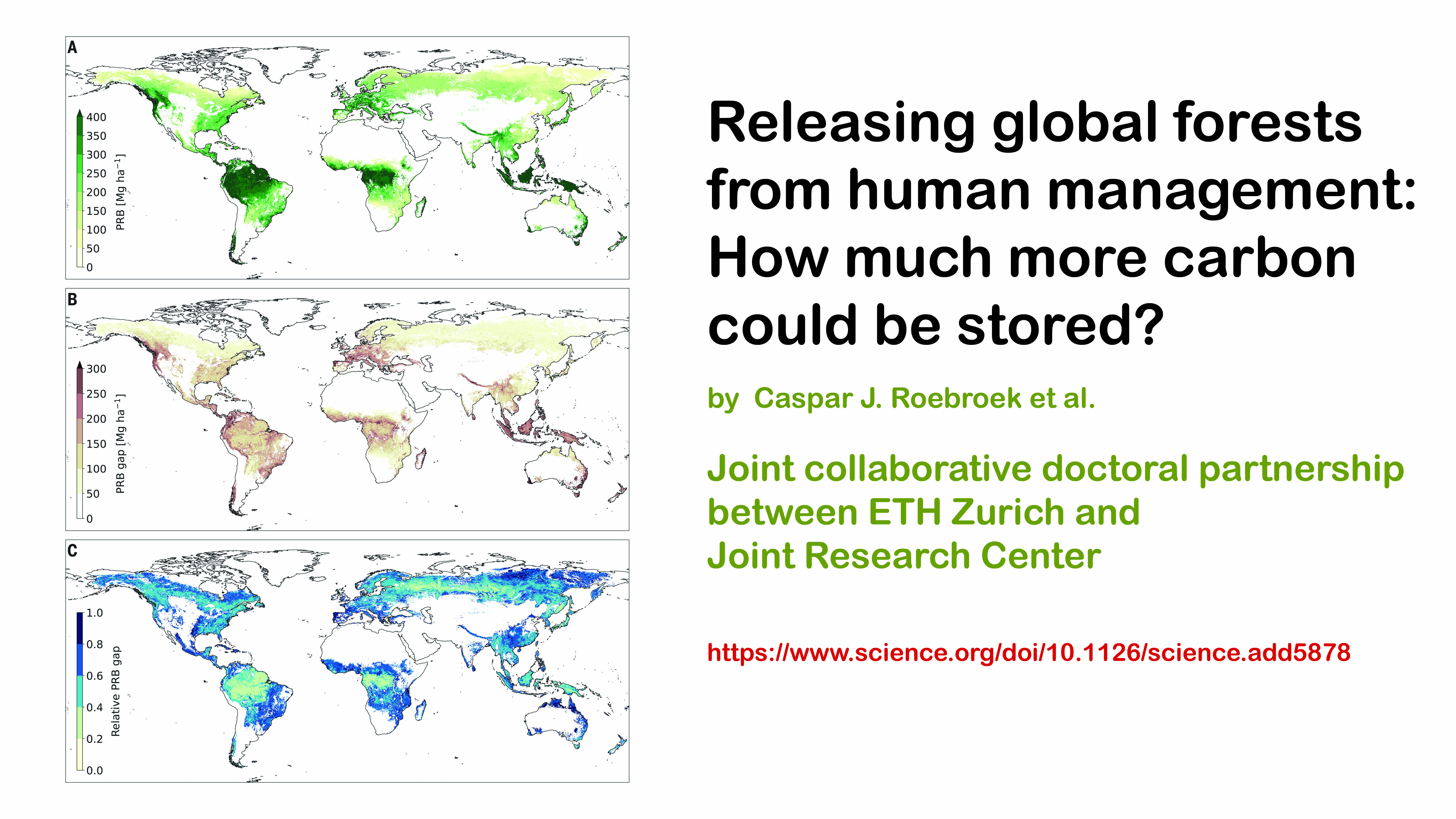JRC-PSC Collaborative Doctoral Program

The PSC invited its members to submit project ideas in collaboration with the Joint Research Center (JRC). The JRC's mission is to support EU policy and decision-making. PSC prepared collaboration agreements between ETH Zurich and JRC as well as University of Zurich and JRC. ETH Zurich and University of Zurich could host PhD students in the topics Soil and land use change (PDF, 385 KB) and Bio-economy and forests (PDF, 303 KB). The PhD candidates have been jointly selected and supervised for the duration of their stay at the JRC (maximum of two years). Salary and research costs during the stay at JRC will be funded by the JRC. The PhD students are enrolled in the PhD Program Science and Policy coordinated by the PSC.
JRC in Ispra (Italy)
Introduction to the JRC (PDF, 11 MB)
This program receives funding from the European Union under the Collaborative Doctoral Partnership Agreement No 35317 (ETH Zurich) and Agreement No 35594 (University of Zurich) with the European Commission Joint Research Centre.
Soil and land use change
The JRC is a leading institution in Europe and in the world for the development of policy relevant soil data and information systems. It provides the necessary scientific data, information and knowledge for supporting the numerous EU policies relevant to soils and land use.
JRC scientists involved in soil and land use research combine expertises in soil sciences, modelling, spatial analysis, geography and agronomy. The JRC's is leading major European and global scientific networks on soil science and soil data: The JRC is chairing the Intergovernmental Technical Panel on Soils (ITPS) of the Global Soil Partnership (GSP) as well as the Land Degradation and Restoration Assessment of the Intergovernmental Platform for Biodiversity and Ecosystem Services (IPBES).
Furthermore, the JRC is hosting the secretariat of the European Soil Bureau Network (ESBN), the European Soil Partnership (ESP) and the European Soil Data Centre (ESDAC).
Bioeconomy and Forests
The Bioeconomy Unit provides scientific support to several EU policies related to the sustainable production, as well as the use, of biological resources and their conversion to value added products, such as construction material, food, feed, bioenergy and bio-based products. The three main areas of research related to:
(1) Sustainable management of forests and forest resources including the development of novel methods to monitor forest resources and carbon emissions. In the tropics, these methods focus on deforestation and forest degradation. In Europe, JRC investigates, among others, how climate change and biotic disturbance agents, like pests, affect resilience in European forest ecosystems, by researching both the early detection of their effects, as well as longer term scenarios. The JRC develops remote sensing methodologies across a range of spatial and temporal scales.
(2) Improve our knowledge of biomass supply, demand, and flows (including waste) both at EU and global levels. JRC is in charge of assessing and modeling EU forests and the forest-based sector in support of the EU Bioeconomy Strategy, and is also responsible of the EU greenhouse gas (GHG) inventory for the forest sector. In this context, JRC studyies the interactions with agriculture and other biobased sectors (e.g. bioenergy, bio-based industry) and develops methods to assess the sustainability of forest-based supply chains.
(3) Assessment of environmental benefits and burdens associated to the production and consumption of products along supply chains. On-going JRC projects related to Life Cycle Assessment (LCA) embracing several scales: from micro scale (e.g. goods, services, organizations), to meso scale (e.g. industrial sectors) and macro scale (e.g. EU-wide policy options). For example, the JRC is supporting the development and improvement of the Environmental Footprint methodology, and is involved in research activities related to the assessment of environmental impact of EU consumption in key areas such as food, mobility, housing, including their evaluation against planetary boundaries.
Funded Projects
| Project Title | Project Leader | Project Topic | PhD student |
|
Modelling Phosphorus cycle in EU agricultural soils and assessing land impact and land mitigation options |
Prof. Stefanie Hellweg and Dr. Stephan Pfister, ETH Zurich, Inst. of Environmental Engineering (IfU), Ecological Systems Design |
Soil and land use change |
Anna Muntwyler, PhD student at ETH Zurich, |
| Anna Muntwyler, Panos Panagos, Francesco Morari, Antonio Berti, Klaus A. Jarosch, Jochen Mayer, Emanuele Lugato (2023) Modelling phosphorus dynamics in four European long-term experiments. Agricultural Systems, Volume 206, 2023, 103595, ISSN 0308-521X, https://doi.org/10.1016/j.agsy.2022.103595. Link |
|||
|
Modelling biodiversity impacts in LCA |
Prof. Stefanie Hellweg and Dr. Stephan Pfister, ETH Zurich, Inst. of Environmental Engineering (IlfU), Ecological Systems Design |
Bio-Economy and forests |
PhD student at ETH Zurich, |
|
Constraining historical and future estimates of land cover and land management effects on climate |
Prof. Sonia Seneviratne and Dr. Edouard Davin, ETH Zurich, Institute for Atmospheric and Climate Science (IAC) | Soil and land use change |
Caspar Roebroek, PhD student at ETH Zurich, |
|
Caspar T. J. Roebroek, Gregory Duveiller, Sonia I. Seneviratne, Eduard L. Davin, Alessandro Cescattti (2023) Releasing global forests from human management: How much more carbon could be stored?.Science380,749-753(2023).DOI:10.1126/science.add5878 |
|||
|
Soil Biodiversity and Ecosystem Functioning Assessment across Europe |
Prof. Marcel van der Heijden, University of Zurich, Department of Plant and Microbial Biology
|
Soil and land use change |
PhD student at University of Zurich, (2020-2024) |
|
Labouyrie, M., Ballabio, C., Romero, F. et al. (2023) Patterns in soil microbial diversity across Europe. Nat Commun 14, 3311 (2023). https://doi.org/10.1038/s41467-023-37937-4 |
|||
Contact
For PIs:
Manuela Dahinden and Romy Kohlmann
For PhD students:
mail to psc_phdprogram@ethz.ch or contact Luisa Last


